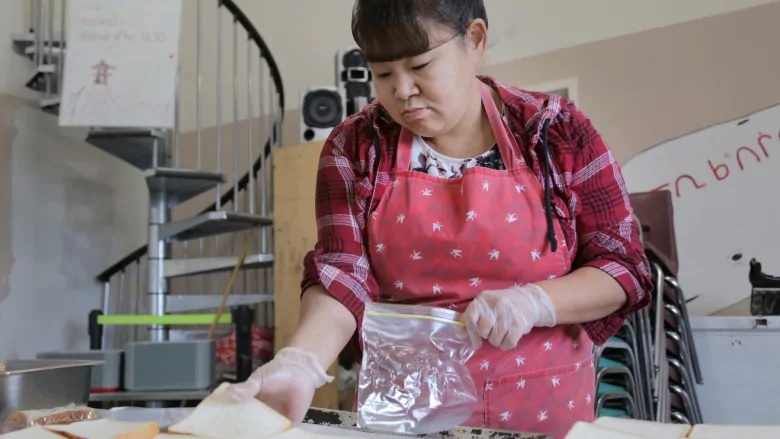Northerners welcome changes to Canada’s Nutrition North program, but wish for more

People across the North are pleased to see changes to Nutrition North, the federal program that aims to make food more affordable for residents living in remote northern areas.
The federal government announced on Wednesday that certain non-perishable food items and products, like diapers and tampons, will now by subsidized when brought in by sealift.
Inuit Tapiriit Kanatami, the national organization representing Inuit interests in Canada, said it welcomes these new changes but are disappointed that support for harvesters of country food has not yet been approved.
“The delivery of Harvesters Support Grant funds for fiscal year 2019-2020, and the co-development of an evaluation framework for [Nutrition North Canada] remain our top priorities,” the organization said in an emailed statement.
In Iqaluit, changes will bring some small relief to the Qajuqturvik Food Centre for the goods they sealift into the city, but not this year.
“Sealift is already done so there is no helping us for this year, but definitely for next season,” said Wade Thorhaug, the centre’s executive director.

He expects the community will see some small changes with the implementation of the sealift subsidy.
“It would reduce [people’s] bills and I think that it will give us marginally lower prices at retailers for things like feminine hygiene products and diapers,” said Thorhaug.
Cathy Aola is part of the training program at the food centre, making lunches for the people who come in for a meal.
“It’s difficult to get food for people who are on welfare. They’re struggling,” she said, adding that any subsidy will help.
“Making the logistical channels for food more efficient is a good step,” said Thorhaug.
“I think that [incentives for] non-perishables is a good idea, but there [are] some more serious overhauls to the program that need to be made, rather than just small tweaks.”
Related stories from around the North:
Canada: Canada’s Nunavut territory to get large slice of $40 million federal harvester support program, CBC News
Finland: One in 10 Finnish families with young children dealing with food insecurity: survey, Yle News
United States: New farm bill program aims to fight food insecurity in Alaska, Alaska Public Media



